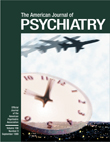Sexuality in Mid-Life
What I especially like about this book is that it is written from an unabashedly personal perspective. In a clear and concise voice, the author tells us how he approaches the problems of love, sex, intimacy, and dysfunction that he encounters in his practice as a middle-aged clinician.
Stephen Levine has devoted his professional life to the study of sexuality—as a clinician, researcher, and educator. In 11 chapters that he “often thought of as essays” the author ably weaves together his own clinical experience with relevant references to the work of others. The resulting tapestry is complex and rewarding—and well worth studying. The issues discussed are among the thorniest we encounter as clinicians.
The first chapter boldly asks, “What Is the Nature of Love?” It sets the tone for the rest of the book, raising more questions than giving answers. Levine warns us up front that his “thinking about love has been informed by three forces: my practice as a clinician, my individual life experiences in the sphere of love, and my reading.” This reading includes philosophy and fiction as well as scientific treatises. The subheadings include Adult Love Is Largely an Ideal, The Beginnings of Love, Staying in Love, Love Is Not Simply a Feeling, Love as a Road Map of Development, and What Is the Significance of Love to Psychiatry? Under the last heading Levine notes that “love is what patients talk about” (it gets more “air-time” than work) and that “not understanding love may predispose mental health professionals to ethical violations,” referring to egregious boundary violations when the emotional arousal stimulated by the intimacy of patient care is not handled appropriately.
The next two chapters, “Psychological Intimacy” and “The Paradoxes of Sexual Desire,” add to the complex underpinnings of sexual interaction. The discussion in these chapters suffuses the more “traditional” chapters dealing with the developmental tasks of mid-life, the biological changes accompanying aging, and the side effects of serotonergic antidepressant medications on sexual functioning.
The two chapters on extramarital affairs in mid-life, discussing the meaning of affairs to the participants as well as to the therapist, enlighten, provoke, and raise many useful questions. Levine offers his thoughts on how clinically to handle the question so typically asked in this connection, What are we going to do?
A very useful concept that Levine has championed over the years is what he calls “the sexual equilibrium.” It is the ever-changing balance between sexual partners of the many complex biopsychosocial variables that each partner brings to a relationship. Sexual satisfaction depends on flexibly adjusting the sexual equilibrium throughout the changes and vicissitudes of life. The clinical examples peppered throughout this book offer useful illustrations of this concept.
In a very personal chapter, “On Being a Middle-Aged Therapist,” Levine shares his own journey of maturation as a therapist and the losses, rewards, and surprises of mid-life.
In the last chapter, “One Avenue to Spiritual Love,” Levine returns to the topic of love. The book ends, as it started, with a question: “What will become of our field if we continue to be professionally disinterested in love?”



